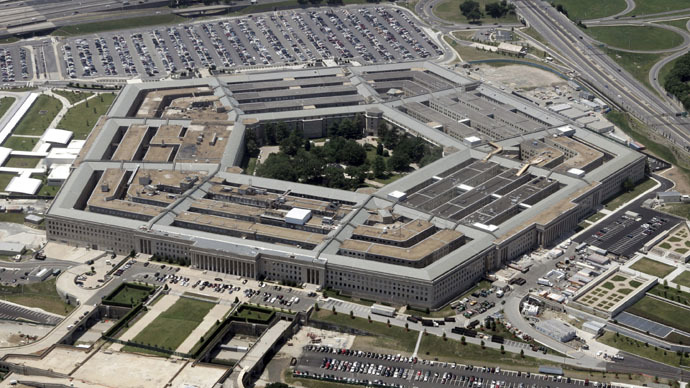$561bn Pentagon budget planned, advocates say real budget is $1trn

The White House will be seeking $561 billion from Congress to run the Pentagon in 2016 – its largest budget ever. However, a research and advocacy director told RT that the budget is closer to $1 trillion, and has been for several administrations.
The Obama administration declared an end to “mindless austerity” on Thursday and called for a surge in government spending, asking Congress to end the sequestration agreed upon four years ago. The White House is looking for $74 billion in additional spending overall, or a seven percent increase. The full budget proposal will be presented on Monday.
“If Congress rejects my plans and refuses to undo these arbitrary cuts, it will threaten our economy and our military,” Obama warned in an op-ed article in the Huffington Post.
In 2011, the sequestration deal forced lawmakers to cut $1.5 trillion from domestic and defense budgets over the course of a decade. Last year saw cuts of $85 billion to various programs.
But the Senate’s No. 2 Republican, John Cornyn of Texas, dismissed the Obama proposals as “happy talk.” Sen. Pat Toomy of Pennsylvania (R) told the Associated Press that "We can’t be abandoning spending discipline. That’s what the president wants to do.”
Many in Congress also oppose the tax hikes Obama has proposed to pay for increased spending. The increased spending would add $38 billion for defense programs and $37 billion for domestic programs. The increases for the Pentagon would pay for next-generation F-35 fighter jets, ships, submarines, and long-range Air Force tankers. Military leaders said earlier that cuts forced reductions in pilots’ flying hours, training, and equipment maintenance.
READ MORE:Pentagon to deploy 400-plus troops to train and equip Syrian opposition
On the domestic side, increases would pay for a proposal that would offer two free years of community college, tax credits for childcare ($3,000 a year), and education tax breaks.
Speaking with Stephen Miles, advocacy director at the Center for International Policy, RT’s Ben Swann said it seems the defense budget keeps growing.
“We continued to see record spending even though we’ve seen the wars in Iraq and Afghanistan wound down,” Miles responded. “For the $523 billion dollars, you have to tack on another $51 billion dollars to include the money we are continuing to spend in Afghanistan and some of the money we are spending in Iraq and Syria.”
Henry Kissinger on #defense budget: "Not adequate to deal with all the challenges I see and ... needs to be reassessed." #SASC
— John McCain (@SenJohnMcCain) January 29, 2015
READ MORE:Iraqi PM: Falling oil price ‘disastrous’ in fight against ISIS
Miles went on to say that the US actually spends far more than $500 billion on defense.
“If you go beyond the core Defense Department and look at the Veterans’ Administration, foreign operations, you get to close to a trillion dollars,” he said. “It has stayed a trillion dollars for quite some time through Republicans and Democrats but it always seems to keep inching up.”
READ MORE:Afghan war waste: $500k, adobe-style police base melted in rain - report (PHOTOS)
Miles said that while it appears Congress and the Obama administration were following the sequestration limits under the Budget Control Act, what they were actually doing was dipping into the Overseas Contingency Operations Account for tens of billions of dollars. He claimed the government has avoided making any substantial cuts to the Pentagon budget.
Michel Chossudovsky: “It’s a very hefty increase in the so-called defense budget at a time when the United States... http://t.co/68pOTAcUQy
— Global Research (@CRG_CRM) January 28, 2015
The amount of money spent on the Pentagon budget is a historical abnormality, Miles added. Before the Bush Administration, there would be a war and Congress would have to agree to emergency funds because wars tend not to happen on Congress’ budget window.
“Since 9/11 and the wars in Iraq and Afghanistan, they [government] have wanted to hide the costs, so they created these off-the-books mechanisms to move the money,” Miles said. “We have tens of hundreds of billions of dollars spent through those accounts, not as much oversight, off-the-books, and it is really just a way to hide the true cost of the US military.”












